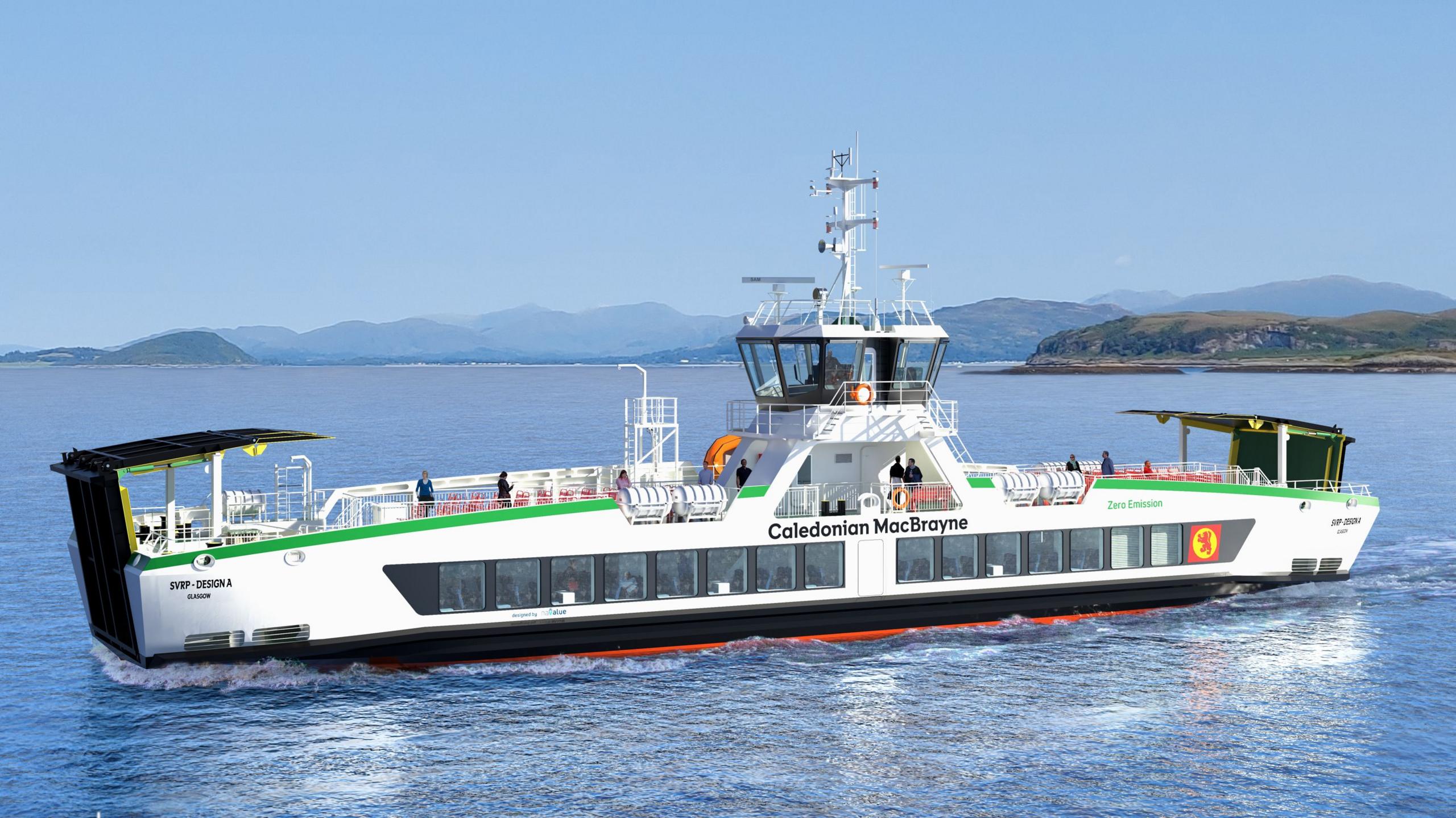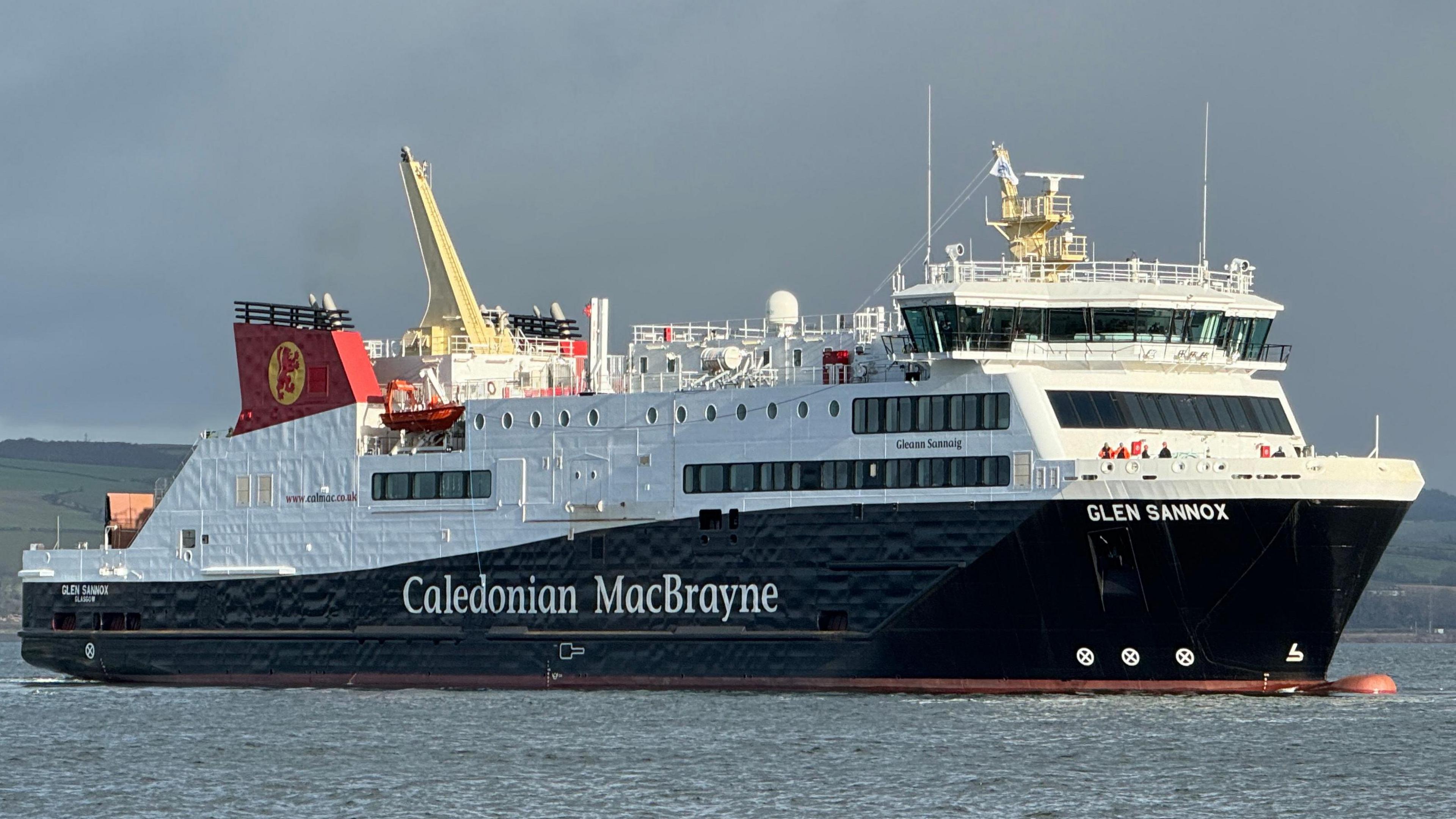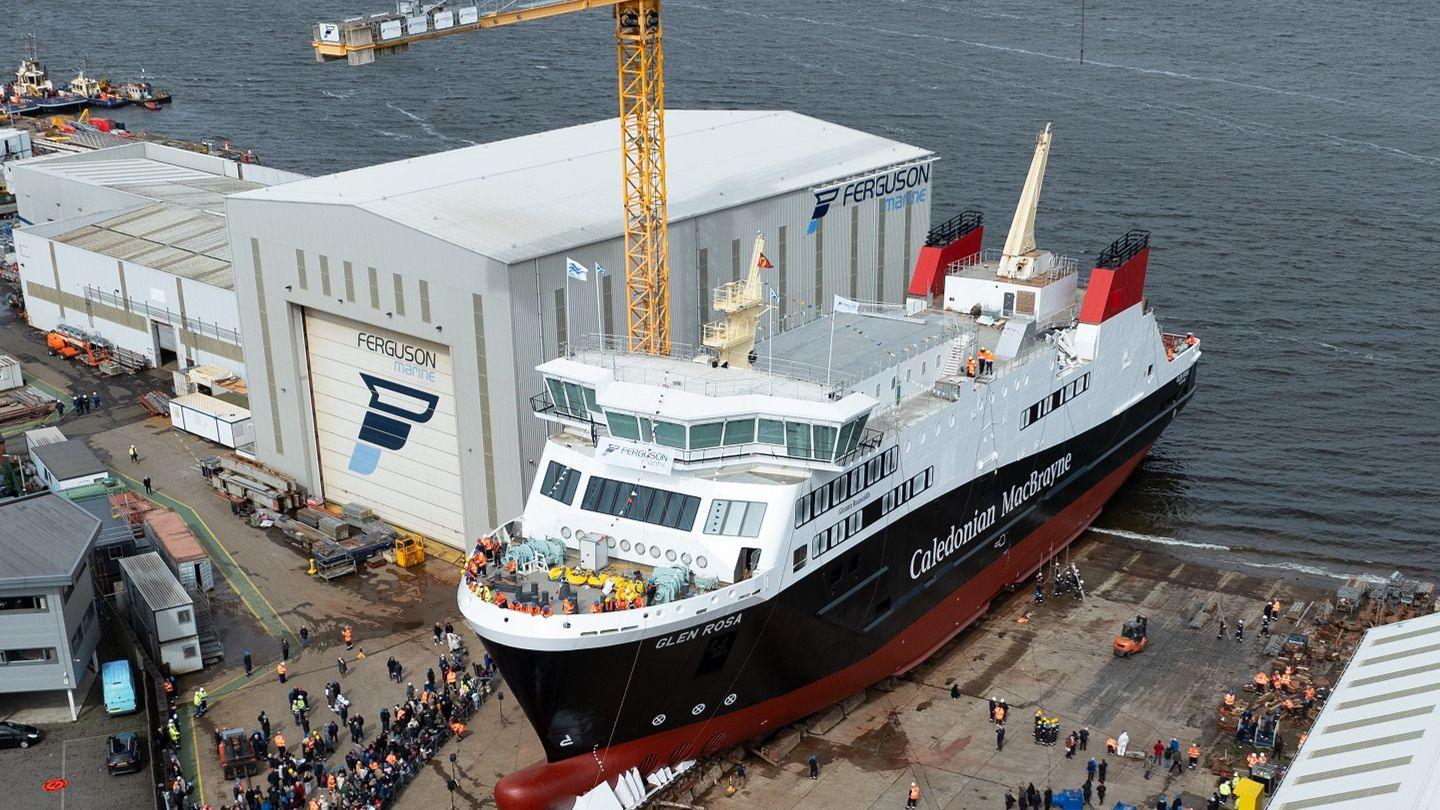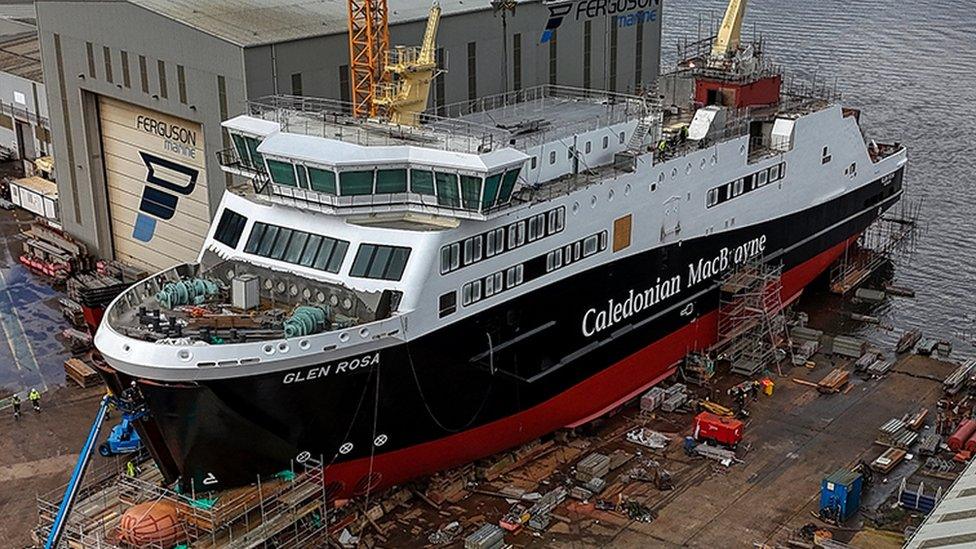Nationalised shipyard faces 12 rivals for ferry contract

The new small CalMac ferries will be all-electric. Concept design imaged supplied by CMAL
- Published
The nationalised Ferguson shipyard has submitted its bid to build a fleet of small electric ferries for Calmac - but faces competition from 12 other firms.
The £175m contract for the seven vessels would be a lifeline for the embattled yard which had a track record of building similar ships on time and on budget before the controversy over two much larger and more complex ferries.
Earlier this year the Scottish government rejected calls to directly award it the new contract, claiming legal challenges could lead to delays.
The first hurdle for the Port Glasgow shipyard will be to get through a pre-qualification assessment, and only a small number of bidders will be invited to tender.
The Ferguson ships nobody talks about
- Published26 November 2023
Ferguson Marine to bid for small ferries contract
- Published18 July 2024
Work is continuing at the yard on the much larger CalMac ships Glen Sannox and Glen Rosa - the first liquefied natural gas (LNG) powered ferries to be built in the UK - with the Glen Sannox due for delivery at the end of September.
The build has been blighted by design challenges and an acrimonious contractual dispute between the yard's former owner and state-owned ferries procurement agency CMAL.
The ships are now six years late and four times over budget.
Former Ferguson Marine chief executive David Tydeman believes the small ferries order could be a vital element in the yard's recovery, helping it improve productivity and rebuild its reputation.
He told BBC Scotland News: "Improving competitiveness partly involves getting the right type of work.
"This order would involve repeatable work over a series of seven ships - and that would allow you to get into a rhythm, driving forward with efficiencies."

Former Ferguson's boss David Tydeman believes the small vessels programme would help the shipyard become more competitive
However, the yard may struggle to compete with bids from overseas shipyards which have lower labour costs and other overheads.
"Some large shipyards in Turkey, for instance, might have 20 projects on the go at once, so they so they can split those running costs between 20 different orders," he said.
"That option isn't available to Ferguson's unless it can secure more work.
"If you are serious about keeping commercial shipbuilding alive in Scotland you may have to accept there's a premium to pay for doing so."
Ferguson's employs about 300 staff, including about 50 apprentices.
The current Ferguson's chief executive John Petticrew previously said the yard would compete "aggressively" for the small ferries order, and hoped its bid would be in "the ballpark".
But he also warned that overseas shipyards enjoy high levels of government support that put UK yards at a competitive disadvantage.
Last year, the Scottish government turned down a request from his predecessor for £25m for investment in new equipment to improve productivity, but a slimmed down request for £14.2m has now been approved.
The yard has no further orders beyond Glen Sannox and Glen Rosa, though it hopes to secure more sub-contracting work from BAE Systems on the Type 26 frigates being built at Govan.
Despite Brexit, public procurement in Scotland is carried out under rules that are almost identical to those that existed before the UK left the European Union.
A new UK Procurement Act comes into force in October, but will not apply to reserved matters, so the rules in Scotland for this type of contract are unchanged.
Related topics
- Published20 April 2024

- Published16 July 2024

- Published6 April 2024
